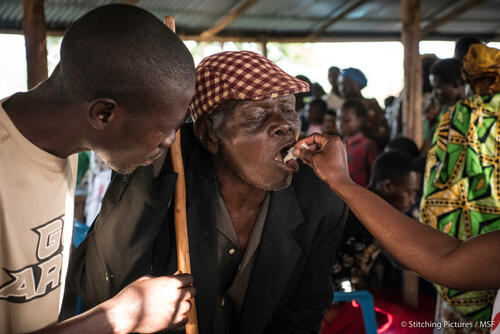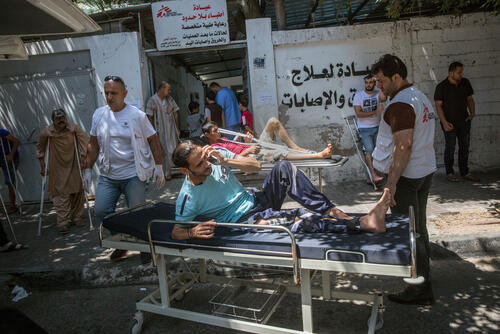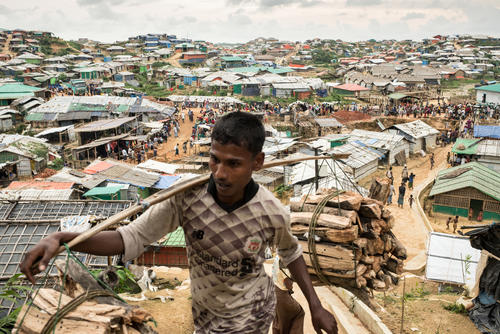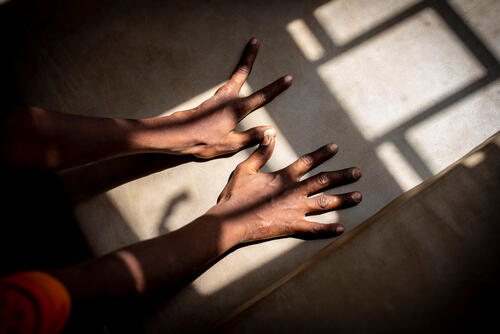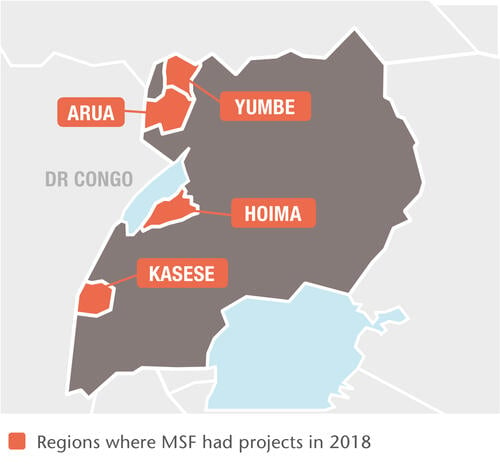
151,700
151,7
8,600
8,6
1,010
1,01

1,170
1,17
530
53
Focusing our activities on certain vulnerable groups who are disproportionately affected, Médecins Sans Frontières provides screening, treatment and support for people living with HIV, sexual and reproductive healthcare for adolescents, and medical assistance for refugees.<a href="https://reliefweb.int/report/uganda/uganda-hosts-africas-largest-refugee-population-funding-fails-match">ReliefWeb</a>
Improving access to treatment for HIV
A reported 1.2 million people in Uganda are living with HIV.<a href="https://www.afro.who.int/sites/default/files/2017-08/UPHIA%20Uganda%20factsheet.pdf">Uganda Population-based HIV Impact Assessment (UPHIA), 2016–2017</a> Despite efforts to improve access to screening and care, significant gaps remain. Increasingly, resistance to antiretroviral drugs results in failures in first- and second-line treatment, and the availability and supply of third-line drugs, or salvage regimens, can be erratic.
In Arua, we provide advanced HIV care, including various point-of-care tests, treatment of cryptococcal meningitis (which results from low immunity), improvements in the clinical management of patients who have not achieved viral suppression, molecular drug-resistance testing and third-line treatment.
Additional activities specifically aimed at children and young people include early HIV detection, peer group support and psychosocial counselling.
In Kasese, we focus on rural fishing communities around lakes Edward and George. We support the formation of community groups to increase access to HIV care and facilitate adherence to treatment, which contributes to improvements in viral load suppression rates.
Sexual and reproductive healthcare for adolescents
Adolescents are particularly vulnerable to sexually transmitted diseases and unwanted pregnancies. There is limited awareness of the risks, aggravating factors and consequences, and insufficient dedicated support available.
We opened a clinic for adolescents in Kasese in 2015 to provide sexual and reproductive healthcare services. More than 32,000 consultations were performed in 2018, with awareness-raising sessions and recreational activities also organised to increase participation.
Assistance for refugees
More than 100,000 people fleeing violence in northeastern Democratic Republic of Congo crossed Lake Albert into Uganda’s Hoima district between late 2017 and early 2018.
In February, the area was hit by a cholera outbreak, in which more than 2,500 cases were recorded, over 40 per cent of them severe. We launched an emergency response, administering oral cholera vaccines to 47,500 people and ensuring the supply of clean water.
Our teams in the refugee settlements also carried out measles and other routine vaccinations, medical consultations, and sexual and reproductive healthcare services.
In Yumbe district, we have been providing inpatient and outpatient care, maternity services and vaccinations to South Sudanese refugees since 2016. We provided clean drinking water and implemented a data collection system to monitor conditions and medical needs in the refugee settlements.
As the number of new arrivals from South Sudan began to decrease early in 2018, we handed over our basic medical consultations to other organisations and focused our efforts on mental healthcare and assistance for victims of sexual violence. Services were rolled out in Imvepi and Rhino settlements, with outreach activities in Bidi Bidi starting in May.



